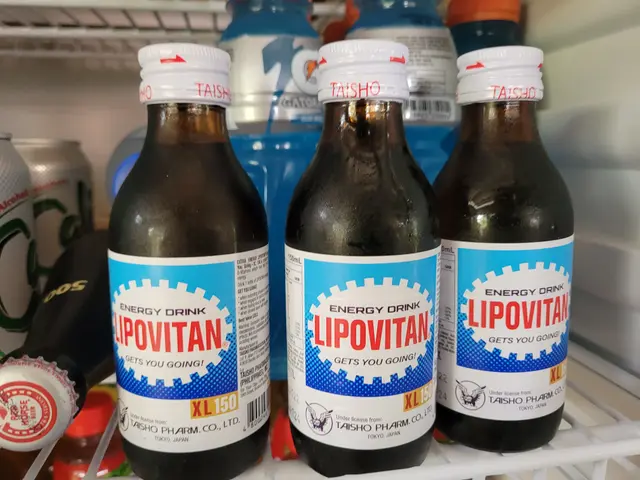Maintaining mental acuity: Adopting Mediterranean diet and regular exercise could offer protective benefits
Let's dive into the MedWalk investigation, a potential game-changer for cognitive health!
The research community is investigating the joint impact of a Mediterranean diet and walking on dementia and cognitive decline, coining the intervention as "MedWalk".
Why MedWalk? Both the Mediterranean diet and regular physical activity, notably walking, have been linked to enhancing brain health. However, this study aims to prove the synergistic effect of this combination.
Wondering what's unique about this study? It's being conducted by a collaborative group of researchers hailing from Australia, New Zealand, and the United Kingdom. The work was initially intended to run for two years, but the ongoing COVID-19 pandemic has necessitated some modifications.
Taking a closer look at the study design, it was originally designed to track cognitive changes for a period of two years. However, it's currently been reduced to a one-year follow-up period. The data associated with this study has been published in the Journal of Alzheimer's Disease.
Medical mysteries of the MedWalk intervention
The primary aim of the scientists behind this study is to gauge a 12-month change in visual memory and learning capacity among the participants. Apart from assessing cognitive effects, the study will also observe the impact of the MedWalk intervention on mood, quality of life, and health costs. Additionally, it'll investigate cardiovascular health and arterial stiffness.
The participants selected for this study are individuals aged 60 to 90, residing in South Australia and Victoria, Australia. Participants were initially recruited from independent living retirement communities. In light of the pandemic, the researchers also expanded their reach, inviting participants from the general community.
Attention is focused on biomarkers associated with cognitive decline, such as glucose regulation, inflammation, nutrients, and oxidative stress.
All aboard the MedWalk: The renewed diet and exercise plan
Participants in the study are split into two groups: the MedWalk intervention group and a control group adhering to their usual diet and activity levels.
The intervention itself involves dietary modification, supervised walking programs, and psychosocial behavioral change techniques. Participants receive 6 months of intensive support, followed by an additional 6 months of support to help them maintain their commitment.
To support participants in making dietary changes, the researchers provide detailed instructions on the differences between a Mediterranean diet and a typical Australian diet.
To facilitate incorporating the key elements of the Mediterranean diet, the researchers will provide participants with extra-virgin olive oil and other essential foods.
Post baseline aerobic fitness assessment, participants participate in group walking sessions for the first 6 months, followed by monthly sessions for the rest of the test year.
A Mediterranean symphony for cognitive health
Certified nutritionist, Conner Middelmann, reminds us that research indicates individuals following a Mediterranean diet demonstrate fewer instances of dementia.
Additionally, studies from 2023 have found an association between a Mediterranean diet and reduced Alzheimer's disease rates, the most common form of dementia.
Middelmann cautions that factors such as genetics, lifestyle, and overall health play a role in dementia risk. A Mediterranean diet, while promising, should be part of a comprehensive approach to maintaining brain health and preventing dementia.
Middelmann lists several potential reasons the Mediterranean diet could contribute to brain health, including its rich antioxidant content, omega-3 fatty acids, fiber content, and low-processed grain and sugar composition.
Finally, Middelmann highlights that socializing during meals and regular exercise, common practices in the Mediterranean diet, may also positively impact cognitive health.
How walking keeps your mind agile
Walking frequently has been linked to slower cognitive decline.
A study showed a dose-dependent relationship between daily steps taken and reduced dementia risk, suggesting that taking 10,000 steps per day decreases the risk by 50%.
Research from the United States and Australia found a link between walking speed and dementia, and a 2017 study in the British Journal of Sports Medicine concluded that aerobic exercise, including walking, helps combat cognitive impairment.
Brain health coach Ryan Glatt explains that walking might enhance brain health in several ways, boosting blood flow, mental activity, and overall well-being. Walking may also fuse social elements and exposure to nature, both of which could contribute to brain benefits.
As of now, the data collection period for this study is scheduled to be completed by the end of 2023.
- The MedWalk intervention, a potential game-changer for cognitive health, is an ongoing study investigating the impact of a Mediterranean diet and walking on dementia and cognitive decline, aiming to prove the synergistic effect of this combination.
- Conducted by a collaborative group of researchers from Australia, New Zealand, and the United Kingdom, the study design originally aimed to track cognitive changes for a period of two years, but has been reduced to a one-year follow-up period due to the ongoing COVID-19 pandemic.
- Participants selected for this study are individuals aged 60 to 90, residing in South Australia and Victoria, Australia, with participants initially recruited from independent living retirement communities, and expansions made to invite participants from the general community due to the pandemic.
- The primary aim of the scientists behind this study is to gauge a 12-month change in visual memory and learning capacity among participants, with additional observations on impact of the MedWalk intervention on mood, quality of life, health costs, cardiovascular health, and arterial stiffness.
- A certified nutritionist, Conner Middelmann, explains that research indicates individuals following a Mediterranean diet demonstrate fewer instances of dementia and that studies from 2023 have found an association between a Mediterranean diet and reduced Alzheimer's disease rates, the most common form of dementia.







